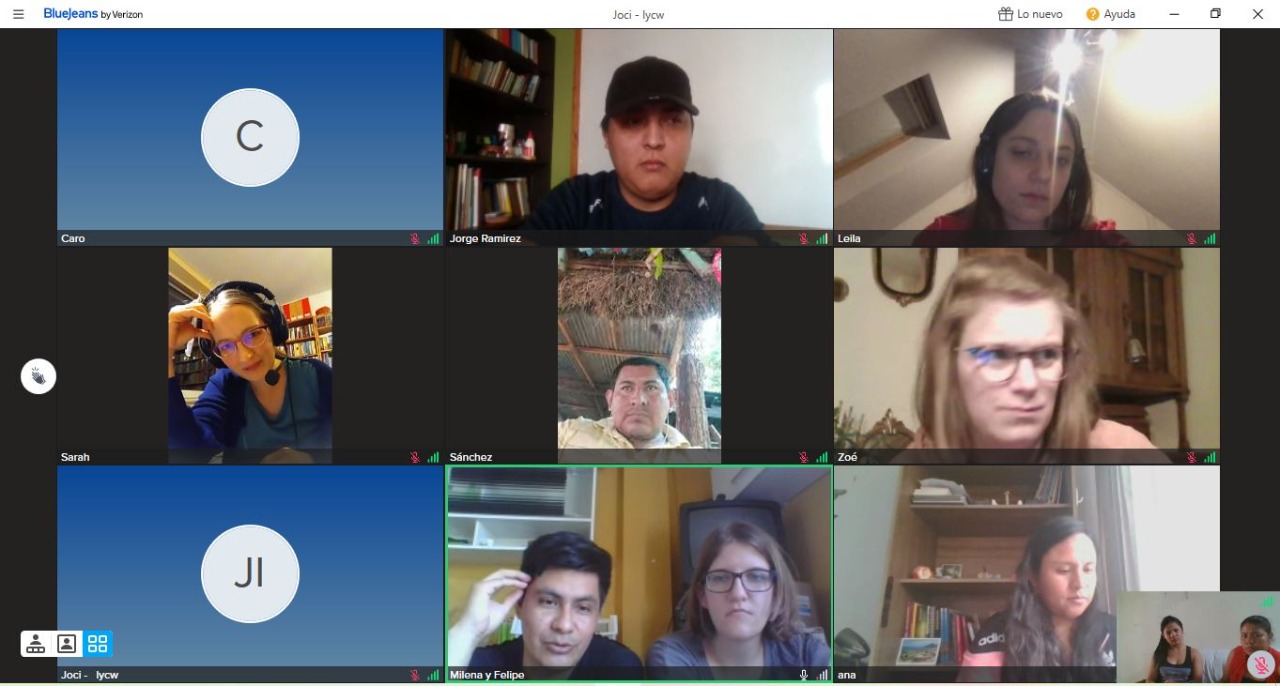
“I was impressed to see that YCW Nicaragua has a plan about their gender action. It is elaborate, with objectives and everything. It made me wonder why we don’t have such a plan in the Walloon YCW.”
This is a statement from Zoe, a fulltimer in the Walloon YCW, telling other French-speaking comrades about her experience in the Spanish-speaking exchange. When describing her action on gender in the Walloon YCW, she presented a national action group giving space to young women and LGBTQI to act together.
Just like her, other delegates from Gabon, Haiti, Congo Brazzaville, Germany, Ghana, Peru, Indonesia, Wallonia (Belgium) and Nicaragua accepted the IYCW gender commission’s invitation to meet in different spaces organized according to time zones and languages in order to exchange about their actions related to gender. When sharing experiences about gender-based violence and discrimination, it became obvious that existing inequalities increased even more because of the current global pandemic. As Rony from Indonesia reported:
“It is a real challenge that many women in Indonesia do not have any health insurance. This is always bad, but it is a real challenge in such a health crisis. Also, many health workers, who are the front-liners right now in our country, are females.”
Care work seems to be a sector absorbing higher shares of female employment all over the world. According to Laura, this is also reflected in a national action group in YCW Germany: “Many of our activists are care workers.” YCW Peru acts for young domestic workers’ rights. “It is one of our key actions”, says Jorge, a national leader from JOC Peru.
“But I almost forgot that it is a gender action. Our discussion made me aware of the importance to reflect on this issue when we evaluate the action.”
However, the pandemic has not only impacted our realities but also our actions and ways of organising. Pat from Ghana told us about the usual celebration YCW Ghana organises for World Women’s Day: “We usually invite a speaker to discuss about gender equality, celebrate a mass and go to a demonstration. This year, it had to be totally different.”
The delegates discovered common points in all their national movements. “We are all working on young women’s empowerment,” concluded the English-speaking delegates. “Our value is to accept people they way they are” was a common conviction expressed in French. In the same way, some recommendations to strengthen our actions were present in each language group:
- Valorize even the small changes happening in everyone involved in our processes;
- Be clear about each processes’ objectives;
- Also reflect on what is happening in our movement since we want to be the new society;
- Use the IYCW gender tools in our training and formation;
- Check in our countries if governments ratified the ILO convention on gender-based violence.
The young workers want to stay in touch and continue exchanging. The French-speakers immediately created a group using social media, while others decided to invite other national movements to their activities. As Errol, the ASPAC coordinator from the Philippines, expressed: “I learned a lot in the discussion. I really would like to continue, learning more also participating in the other NMs meetings.”


 English
English  Español
Español  Français
Français